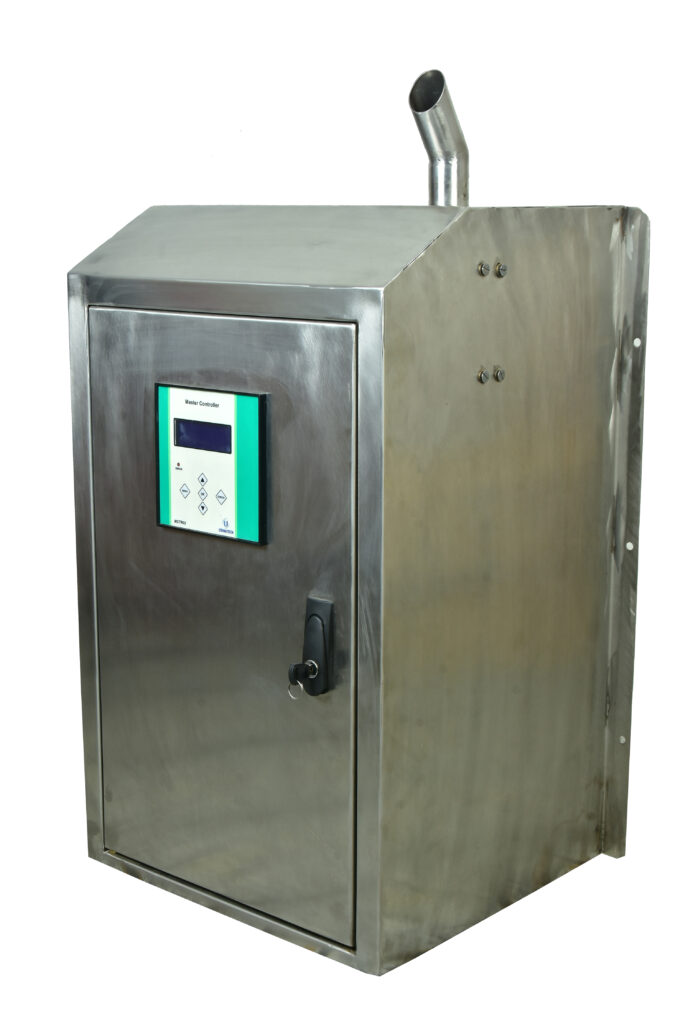Odour Control Units for Garbage Chutes

Odors can be a significant concern in various industries and environments, ranging from wastewater treatment plants to food processing facilities. Not only can unpleasant odors impact worker morale and productivity, but they can also create discomfort for nearby residents and communities. In response to these challenges, odour control units have emerged as effective solutions for neutralizing and managing odors. In this blog post, we’ll explore the importance of odour control units, how they work, and their applications across different industries.
Understanding Odour Control Units: Odour control units, also known as odor control systems or odor neutralizers, are specialized equipment designed to eliminate or neutralize odorous compounds in the air. These units utilize various technologies and mechanisms to target and remove odor-causing molecules, resulting in cleaner and fresher air quality.
How Odour Control Units Work: There are several methods employed by odour control units to combat odors effectively:
- Chemical Neutralization: Some odour control units use chemical agents or neutralizing solutions to chemically react with odorous compounds, transforming them into non-odorous substances.
- Adsorption: Adsorption-based odour control units utilize activated carbon or other porous materials to adsorb and trap odorous molecules, effectively removing them from the air.
- Oxidation: Oxidation-based systems utilize oxidizing agents such as ozone or hydrogen peroxide to break down odorous compounds into simpler, non-odorous molecules.
- Biological Treatment: In some cases, biological treatment methods such as biofiltration or bio-scrubbing are employed, utilizing microorganisms to metabolize and degrade odorous compounds.
Applications of Odour Control Units: Odour control units find applications across various industries and settings:
- Wastewater Treatment Plants: Odour control units are essential in wastewater treatment facilities to mitigate the foul odors generated during the treatment process, preventing odor nuisance for nearby residents.
- Food Processing Facilities: In food processing plants, odour control units help manage odors emanating from cooking, processing, and waste disposal activities, ensuring a pleasant working environment.
- Landfills and Waste Management Sites: Odour control units are deployed in landfill sites and waste management facilities to control the release of methane and other odorous gases, minimizing odor complaints from surrounding communities.
- Industrial Manufacturing: Industries such as chemical manufacturing, petrochemicals, and pulp and paper utilize odour control units to manage emissions and comply with environmental regulations.
- Commercial and Residential Buildings: Odour control units are also used in commercial and residential buildings to address indoor air quality issues, including odors from cooking, pets, and tobacco smoke.
Benefits of Odour Control Units: The use of odour control units offers several benefits:
- Improved Air Quality: By effectively removing odorous compounds from the air, odour control units help improve indoor and outdoor air quality, creating a healthier and more pleasant environment.
- Compliance with Regulations: Odour control units assist industries in complying with regulatory standards and emissions limits, reducing the risk of fines and penalties for odor violations.
- Enhanced Community Relations: By minimizing odor emissions, odour control units contribute to better community relations and reduce the risk of odor complaints and disputes with neighboring residents.
- Worker Health and Safety: Maintaining a odor-free work environment is essential for worker health, safety, and productivity. Odour control units help create a more comfortable and conducive workplace.
Conclusion: Odour control units play a vital role in managing odors and improving air quality across various industries and environments. By employing advanced technologies and treatment methods, these units offer effective solutions for neutralizing odorous compounds and creating a cleaner, healthier, and more pleasant environment for workers and communities alike. Whether in wastewater treatment plants, food processing facilities, or industrial manufacturing plants, odour control units are indispensable tools for addressing odor challenges and ensuring regulatory compliance.

